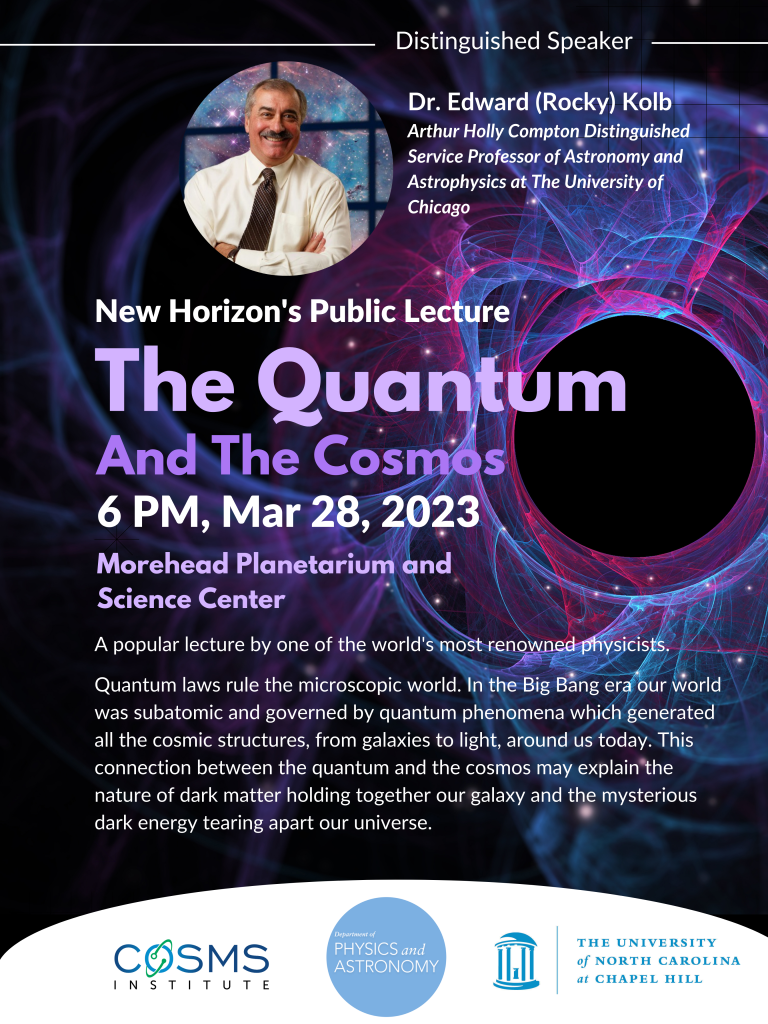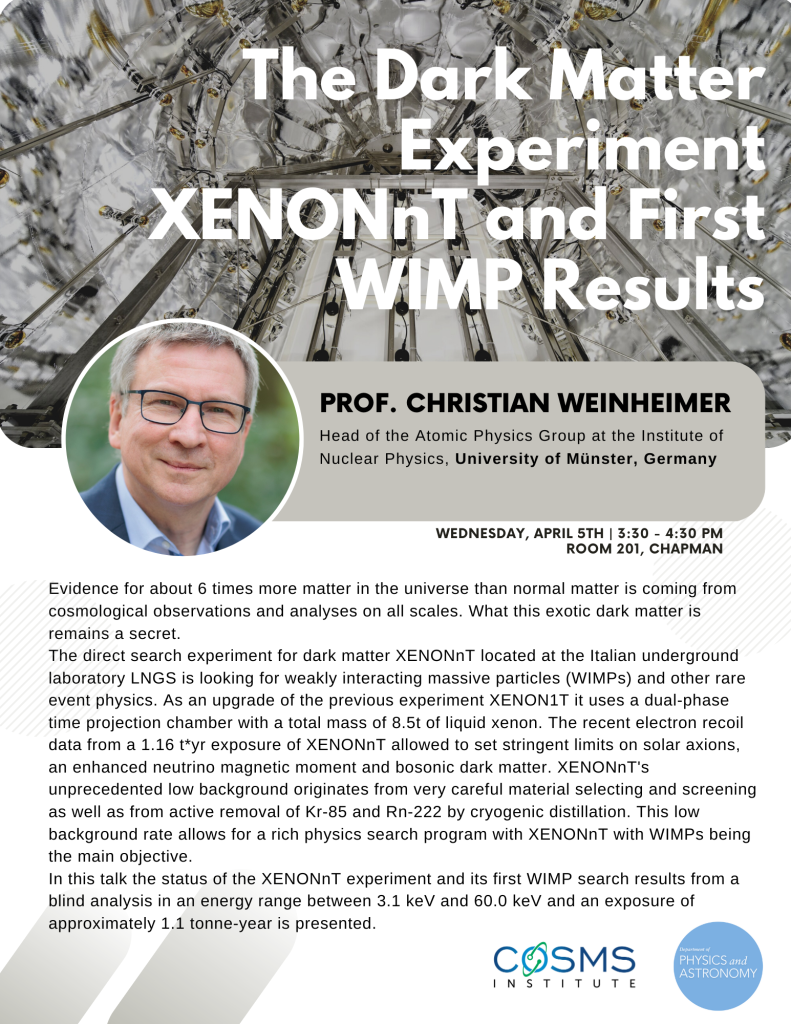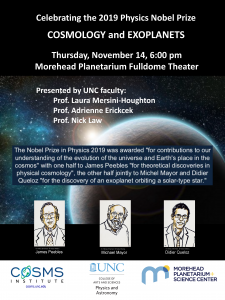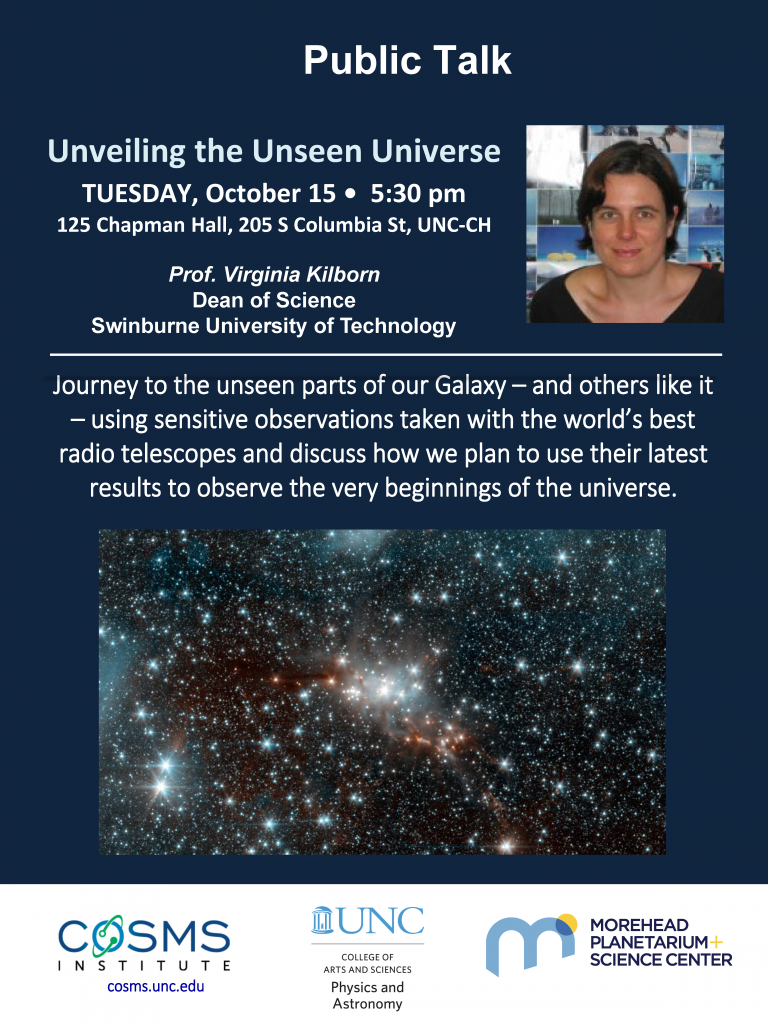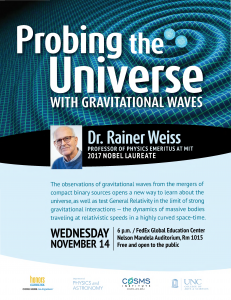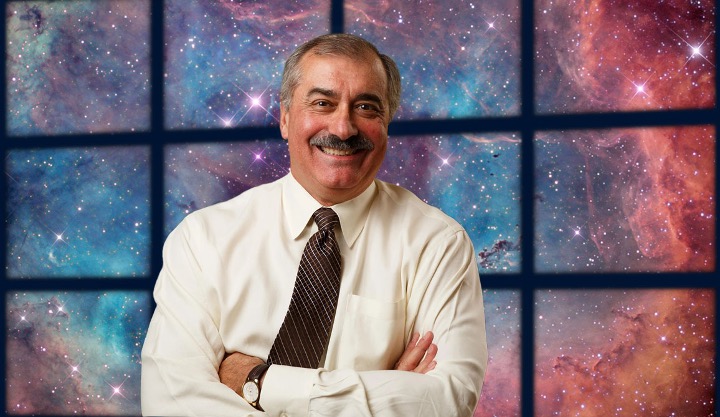
Professor Edward (Rocky) Kolb, the Arthur Holly Compton Distinguished Service Professor of Astronomy & Astrophysics at the University of Chicago, will visit UNC and CosMS Institute on March 27th and 28th, as the New Horizon’s Distinguished Speaker. And on the 28th he will deliver a speech to the general public. As a renowned physicist and cosmologist, Dr. Kolb’s insights and perspectives are sure to be of great interest to a wider audience of science and universe lovers. All are welcome to attend this event and share this opportunity with colleagues, friends, and networks.
Edward W. Kolb is a professor in the Department of Astronomy and Astrophysics at the University of Chicago. He was the founding head of the NASA/Fermilab Astrophysics Group at Fermi National Accelerator Laboratory. In addition to more than 200 scientific papers, he is a co-author of The Early Universe, the standard textbook on particle physics and cosmology. His book for the general public, Blind Watchers of the Sky (winner of the 1996 Emme Award from the AAS), is the story of the people and ideas that shaped our view of the universe. Kolb was awarded the Quantrell Award for Excellence in Undergraduate Teaching and the Oersted Medal of the American Association of Physics Teachers.
Speech Title and Abstract
Title – The Quantum and the Cosmos
Abstract – Quantum laws rule the microscopic world. In the Big Bang era our world was subatomic and governed by quantum phenomena which generated all the cosmic structures, from galaxies to light, around us today. This connection between the quantum and the cosmos may explain the nature of dark matter holding together our galaxy and the mysterious dark energy tearing apart our universe.
Time: 6:00 P.M., March 28th, 2023
Location: Morehead Planetarium and Science Center, 250 E Franklin St, Chapel Hill, NC 27514
